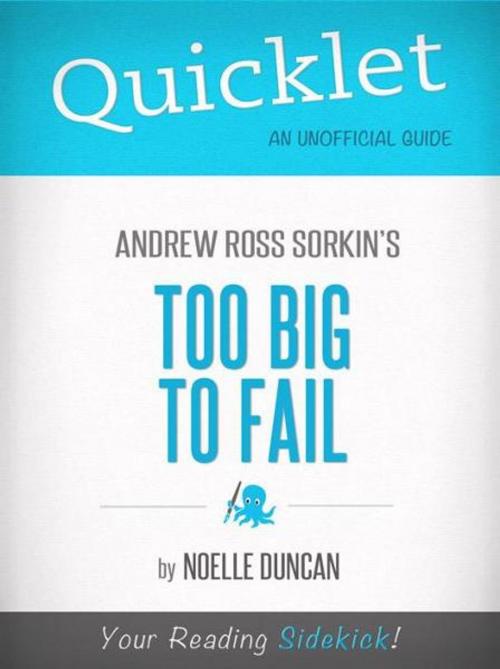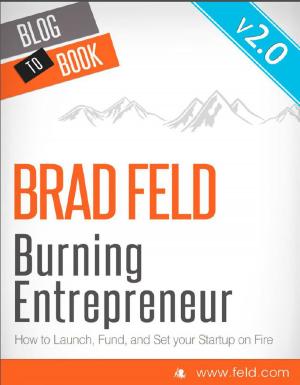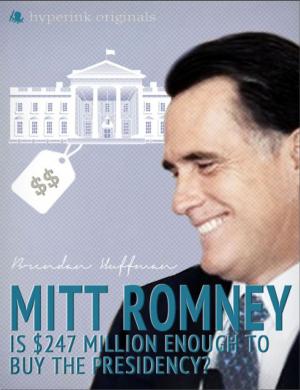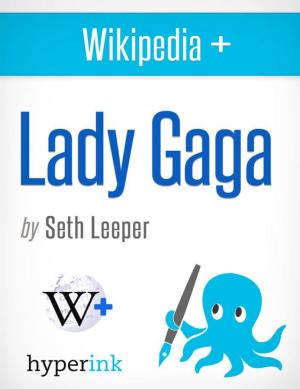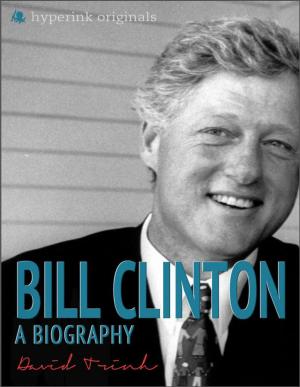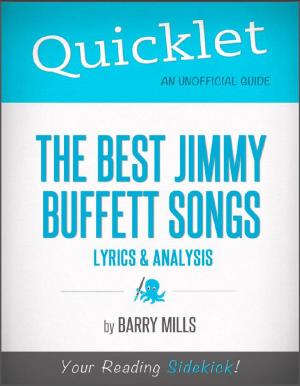Quicklet On Too Big To Fail By Andrew Ross Sorkin (Cliffnotes-Like Book Summary)
Business & Finance, Economics, International Economics, Nonfiction, Reference & Language, Study Aids| Author: | Noelle Duncan | ISBN: | 9781614644101 |
| Publisher: | Hyperink | Publication: | December 7, 2011 |
| Imprint: | Language: | English |
| Author: | Noelle Duncan |
| ISBN: | 9781614644101 |
| Publisher: | Hyperink |
| Publication: | December 7, 2011 |
| Imprint: | |
| Language: | English |
Quicklets: Learn More. Read Less.Andrew Ross Sorkin is an award-winning journalist and New York Times best-selling author. He has been a regular contributor to The New York Times since he was a student at Cornell University. He is also a co-anchor of CNBC's Squawk Box, a business news program and founder of DealBook, a news service that reports on daily deal-making on Wall Street.Sorkin is a recipient of the Gerald Loeb award for business journalism in Too Big to Fail and a Society of American Business Editors and Writers award for breaking news.Sorkin wrote Too Big to Fail to provide a detailed, moment-by-moment account of the 2008 financial crisis. He used interviews with over two hundred individuals involved in the financial meltdown to piece together a blow-by-blow narrative of events.Too Big to Fail recounts the story of the unbelievable events of the 2008 financial crisis Lehman Brothers' historic collapse, the Bank of America-Merrill Lynch merger, the nationalization of AIG, and Morgan Stanley and Goldman Sachs' transformations into highly regulated banks. Beyond the story of failed financial empires, Too Big to Fail is a human drama, telling stories of the greed, hubris and perseverance of some of the biggest players on Wall Street and in the U.S. Government.Too Big to Fail won a Gerald Loeb award and remained on The New York Times Best Seller List list for six months. Reuters dubbed it The Book of the Crisis. Too Big to Fail received glowing reviews in top publications such as the Bloomberg News Review, The Economist, and The Financial Times. Sorkin continues to be seen as a top authority on all things Wall Street. BOOK EXCERPT FROM THE ANDREW ROSS SORKIN QUICKLET: TOO BIG TO FAILThe chapter opens with Tim Geithner, President of the New York Federal Reserve, arriving in Washington, DC. Only a few weeks earlier, Geithner had co-facilitated the 29 billion government backstop that helped persuade Jamie Dimon to take over Bear Stearns. His decision to back Bear Stearns was unpopular with many in the private and public sectors. Geithner also struggled with being unpopular on Wall Street, as he was regarded as young and inexperienced. Unlike his predecessors, he wasn't a former Wall Street banker or an investor, but a career technocrat. Despite Geithner's greenness, he was one of the few who was skeptical of Wall Streets credit boom before it collapsed.Geithner and Robert Steel, Undersecretary for Domestic Finance for the Treasury, attend a meeting with the Senate Banking Committee. Steel dodges questions regarding the government's role in the Bear Stearns fire sale deal. Members of the Senate express their discontent with the government-assisted takeover and question whether this might set a dangerous precedent for other companies on Wall Street. Steel and Geithner defend their actions and explain that the deal was done for the good of the country and the global financial system, not for private gain.The details of the Bear Stearns deal are revealed in this chapter. Weeks earlier, Dimon received a call from Alan Schwartz, the CEO of Bear Stearns, asking for help he needed 30 billion to survive. Unable to produce the amount on short notice, Dimon called Geithner, who was able to grant JP Morgan a loan over the weekend. Geithner pressured Dimon to take over Bear Stearns in order to stabilize the financial market....to be continued!Quicklets: Learn More. Read Less.
Quicklets: Learn More. Read Less.Andrew Ross Sorkin is an award-winning journalist and New York Times best-selling author. He has been a regular contributor to The New York Times since he was a student at Cornell University. He is also a co-anchor of CNBC's Squawk Box, a business news program and founder of DealBook, a news service that reports on daily deal-making on Wall Street.Sorkin is a recipient of the Gerald Loeb award for business journalism in Too Big to Fail and a Society of American Business Editors and Writers award for breaking news.Sorkin wrote Too Big to Fail to provide a detailed, moment-by-moment account of the 2008 financial crisis. He used interviews with over two hundred individuals involved in the financial meltdown to piece together a blow-by-blow narrative of events.Too Big to Fail recounts the story of the unbelievable events of the 2008 financial crisis Lehman Brothers' historic collapse, the Bank of America-Merrill Lynch merger, the nationalization of AIG, and Morgan Stanley and Goldman Sachs' transformations into highly regulated banks. Beyond the story of failed financial empires, Too Big to Fail is a human drama, telling stories of the greed, hubris and perseverance of some of the biggest players on Wall Street and in the U.S. Government.Too Big to Fail won a Gerald Loeb award and remained on The New York Times Best Seller List list for six months. Reuters dubbed it The Book of the Crisis. Too Big to Fail received glowing reviews in top publications such as the Bloomberg News Review, The Economist, and The Financial Times. Sorkin continues to be seen as a top authority on all things Wall Street. BOOK EXCERPT FROM THE ANDREW ROSS SORKIN QUICKLET: TOO BIG TO FAILThe chapter opens with Tim Geithner, President of the New York Federal Reserve, arriving in Washington, DC. Only a few weeks earlier, Geithner had co-facilitated the 29 billion government backstop that helped persuade Jamie Dimon to take over Bear Stearns. His decision to back Bear Stearns was unpopular with many in the private and public sectors. Geithner also struggled with being unpopular on Wall Street, as he was regarded as young and inexperienced. Unlike his predecessors, he wasn't a former Wall Street banker or an investor, but a career technocrat. Despite Geithner's greenness, he was one of the few who was skeptical of Wall Streets credit boom before it collapsed.Geithner and Robert Steel, Undersecretary for Domestic Finance for the Treasury, attend a meeting with the Senate Banking Committee. Steel dodges questions regarding the government's role in the Bear Stearns fire sale deal. Members of the Senate express their discontent with the government-assisted takeover and question whether this might set a dangerous precedent for other companies on Wall Street. Steel and Geithner defend their actions and explain that the deal was done for the good of the country and the global financial system, not for private gain.The details of the Bear Stearns deal are revealed in this chapter. Weeks earlier, Dimon received a call from Alan Schwartz, the CEO of Bear Stearns, asking for help he needed 30 billion to survive. Unable to produce the amount on short notice, Dimon called Geithner, who was able to grant JP Morgan a loan over the weekend. Geithner pressured Dimon to take over Bear Stearns in order to stabilize the financial market....to be continued!Quicklets: Learn More. Read Less.
